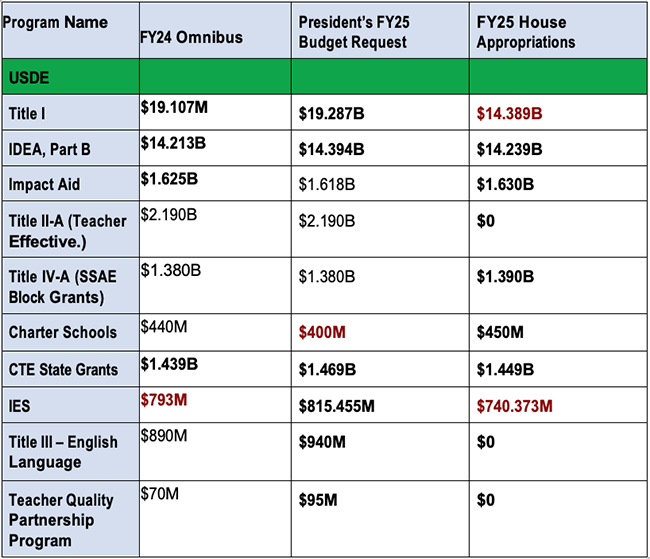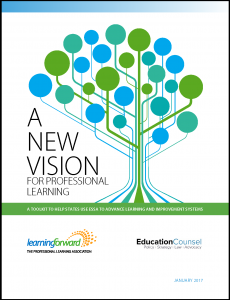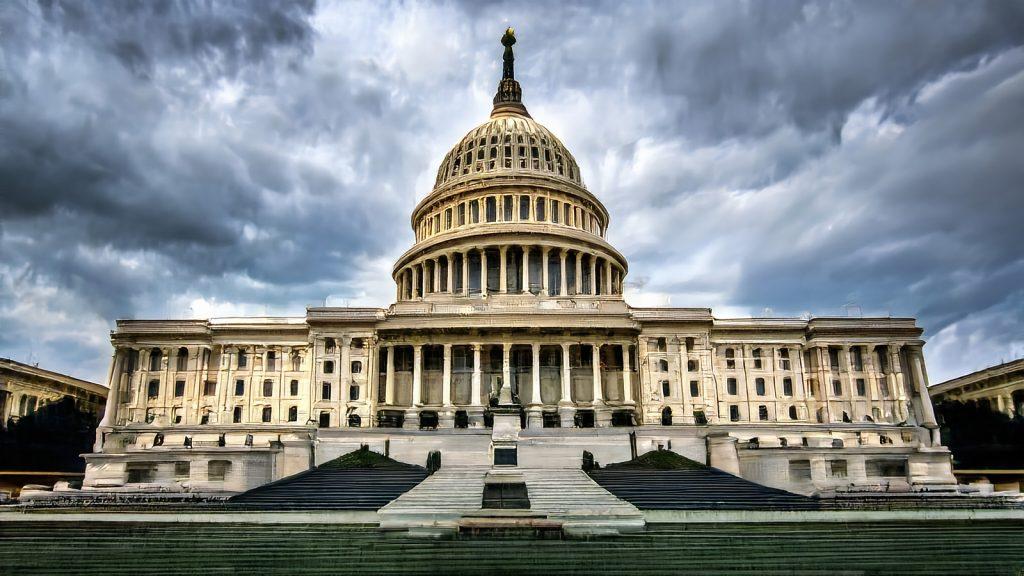Learning Forward Advocacy
Thank you for standing up for professional learning!
On December 5, 2023, more than 3300 people stood up for professional learning on advocacy day at the Learning Forward annual conference. This is a stand we must all make every day. Remember to collect and share stories of the impact of professional learning in your school or learning environment. Learning Forward wants to hear from you.
Call to Action - Save Title II-A

Members of Congress will return after Labor Day and appropriations and continued funding to keep the government open are going to be the issues front and center for every member of Congress. Now is not the time to be complacent. We need to remain vigilant in our efforts to save Title II-A. On July 18, Fred Brown issued a call to action to all educators to help save Title II-A. If you are reading this message, please take a moment to send a message to your members of Congress. Press the blue button below to get started.
Learning Forward Advocacy
Powered by Title II
Communities & members
Resources
Video: Why is educator professional learning important for students?
Need help?
Today, the House Appropriations Committee unveiled the legislative report for its fiscal year 2025 Labor HHS Education bill, which it will mark-up on July 10 (Update: The committee voted 31-25 to approve the appropriations bill on July 10.) Overall, the report details how the House Appropriations Committee plans to slash approximately $11.1 billion from the Department of Education’s budget, identifying the 17 programs that would be eliminated and other deep cuts should it become law. It also shows how other major programs, like Title IV-A, IDEA, Career and Technical Education and Impact Aid, would remain protected and actually receive small increases in this bill. The House will attempt to pass this bill on the House floor in late July. The Senate has not yet introduced its own version of this bill but that also is expected later this month. The largest K-12 cuts in the House’s FY25 Labor HHS Education bill come from cutting $3.78 billion from Title I, Part A; eliminating entirely the $2.19 billion Title II-A, the Supporting Effective Instruction State Grants program; and deleting the $890 million Title III, English Language acquisition program. Other smaller but important K-12 programs eliminations revealed by the report include:
- State Assessments ($380 million)
- Promise Neighborhoods ($91 million)
- American History and Civics National Activities ($20 million)
- Teacher and School Leader Incentive Grants ($60 million)
- Supporting Effective Educator Development (SEED) ($90 million)
- Arts in Education ($36 million)
- Javits Gifted and Talented ($16.5 million)
- Statewide Family Engagement Centers ($20 million)
In higher education, the report shows that the bill would eliminate the $70 million Teacher Quality Partnerships program and cut $4.133 million from the Higher Education Act’s Title VI International Programs section. The Institute for Education Sciences, which conducts education research, would see a nearly $53 million cut.
By far and away the most devastating cut is the proposed eliminations of Title II-A. The House report provides a troubling rationale for this elimination:
“This funding has not been shown to improve teacher quality or advance student achievement. Additionally, the Committee notes that according to the Department’s August 2023 report (‘‘State and District Use of Title II, Part A Funds in 2021–2022’’), professional development was the most popular use of Title II-A funds among school districts. Seventy five percent of districts reported funding professional development for teachers, and 56 percent of districts reported funding professional development for principals and other school leaders. Among districts that invested Title II-A funds in teacher professional development, 78 percent funded topics related to ‘‘content knowledge.’’ The Committee is concerned that school districts are using these Federal funds to train teachers in divisive ideologies.”
In addition to trying to defund Title II-A, the Committee demands – perhaps in an effort to crack down on the alleged “divisive ideologies” training noted above – that all school districts that have received Title II-A funding provide “a report that lists any use of this funding for the most recent year data is available, by schools or school districts to pay outside consultants or firms for the purposes of teacher and/or school leader training or professional development. The report shall include the specific names of any applicable consultants or firms who were paid using Title II-A funds and where possible a description of the training or other materials provided.”
Below is a breakdown of key K-12 program funding levels:

For Immediate Release
June 27, 2024
U.S. House of Representatives Subcommittee Slashes Federal Education Budget — Republicans Call for Full Elimination of Title II-A in FY 2025
Full Congress Must Save Schools, Students, Educators
Washington, D.C. – The House Republican education budget plan shared today poses a severe threat to the educational needs of America’s children. The plan will be voted on tomorrow by the Labor – Health and Human Services – Education Appropriations Subcommittee.
“House Republicans are recklessly endangering schools, students, and educators by slashing essential K-12 education funding programs in their fiscal year 2025 appropriations process,” said Frederick Brown, president and CEO of Learning Forward. “With COVID-era education funding set to expire later this year, persistent teacher shortages, and ongoing efforts to address achievement gaps worsened by the epidemic, now is not the time for drastic cuts to federal education funding.”
The Republicans’ education budget proposal includes full elimination of Title II-A, the only source of federal funding dedicated to professional learning for teachers and school leaders. If the funding levels being proposed in the House are enacted, the impact would be devastating. Learning Forward is calling on Congress to reject the House proposal and instead fully fund education for America’s students and educators, including providing $2.4 billion in FY 25 for Title II-A, without cuts to other education programs.
For media inquires, contact Gail Paul at media@learningforward.org.
Learning Forward’s Powered by Title II campaign website puts all of the information, tools, and advocacy tutorials in one easy to access online location to enable educator advocates reach their Members of Congress and help convince them to support more Title II funding. On this site, advocates will find:
- The latest news on Title II
- Background facts, stories, research, and data on Title II
- A storytelling tool to assist you in researching and explaining how Title II supports your school district
- Sample letters, talking points, tweets and more to support your advocacy
Evidence, evidence, evidence
Evidence of impact is not optional. From your ESSA plans to Title II to talking with your district superintendent, everyone wants to know when professional development is making an impact and how you know. Learning Forward is here to help. We invite you to join your peers from across the U.S. to share your successes here.
Tell us what Title II funds in your school or district, and most important, what outcomes you see as a result. Outcomes might include improved graduation rates or assessment scores, improvements for specific populations of students, or other indicators that students are experiencing more meaningful learning.
ESSA Toolkits
 A New Vision For Professional Learning: A Toolkit to Help
A New Vision For Professional Learning: A Toolkit to Help
States Use ESSA to Advance Learning and ImprovementSystems. This toolkit helps leaders leverage professional learning as
an essential tool in overcoming systemic inequities and guaranteeing
excellence for all.
Agents for Learning Toolkit: A Guide to Amplifying Teacher
Voice and Stakeholder Engagement. This toolkit suggests ways to cultivate teacher voice and agency in policy decisions and the implementation of professional learning.
This webinar, originally created for our Virtual Advocacy Day, includes advocacy strategies and tips that are applicable to any advocacy effort. Watch to hone your skills, build confidence, and get excited about being an advocate.




